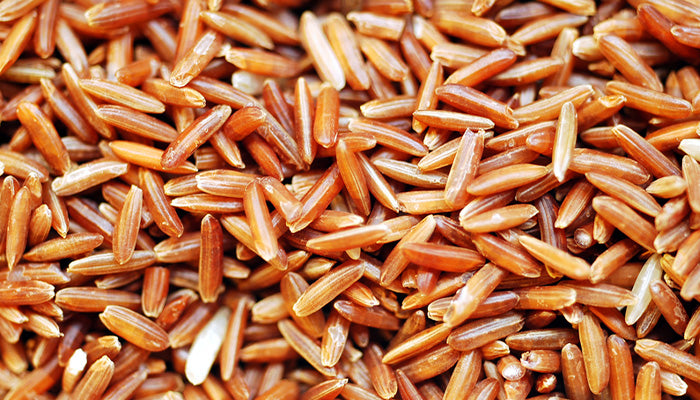Protein Content in Brown Rice
Brown rice is the healthiest source of vitamins and proteins; its outer layer is full of these nutrients; that is removed to get white rice.
In this article, we will discuss one of the best whole grains, brown rice that is a natural source of protein and offers you many health benefits.
Nutrients in Brown Rice
Brown rice is a healthy whole grain, contains all nutrients that you need to maintain a good health level and gain better mental health.
Brown rice contains vitamins, fibers, proteins, carbs, iron, thiamin, pyridoxine (B6), zinc, coppers, manganese, and magnesium.
All these nutrients are best for your mental and physical health; lower the risks of all health issues. You can add brown rice to your meal plans to reduce diabetes and heart problems; maintain heart health.
Protein Contents in Brown Rice
Brown rice is often regarded as a healthier alternative to white rice because it retains the bran and germ layers, making it a more nutrient-dense option. But what about its protein content?
A 100g serving of cooked brown rice provides approximately 2.6g of protein, making it a moderate source of protein, especially when paired with other protein-rich foods.
While this may not seem like much compared to meat or dairy, it’s still a great source of plant-based protein, especially when you pair it with other protein-rich foods.
Why Brown Rice is a Great Source of Protein
While brown rice may not offer as much protein as animal products or legumes, it still holds its ground when it comes to providing essential nutrients. Here are a few reasons why brown rice is a valuable addition to your diet:
Complete Carbohydrates with Protein
Brown rice is a source of complex carbohydrates, meaning it’s digested slowly and provides a steady source of energy.
The addition of protein to this carb-rich food helps balance blood sugar levels and keeps you feeling full longer, making it a great choice for those looking to manage their weight.
Rich in Fiber
In addition to protein, brown rice is rich in dietary fiber. This helps improve digestion, regulate bowel movements, and support overall gut health.
Fiber also works synergistically with protein to help keep you feeling satisfied, reducing the temptation to snack between meals.
Vitamins and Minerals
Brown rice isn't just about carbs and protein—it also packs a punch when it comes to essential vitamins and minerals.
It’s a good source of magnesium, iron, and B vitamins, which are crucial for energy production, muscle function, and overall health.
For those on plant-based diets, brown rice can help fill nutritional gaps that might exist from not consuming animal-based products.
How to Boost Protein with Brown Rice
To get the most out of brown rice, it’s all about how you combine it with other foods. While it offers some protein on its own, pairing it with complementary protein-rich foods will make your meal much more nutritionally balanced. Here are a few ideas:
Brown Rice and Beans
One of the most popular and effective combinations is brown rice and beans. Together, they form a complete protein source, meaning you get all the essential amino acids your body needs for muscle growth, repair, and overall function.
Whether you opt for kidney beans, chickpeas, or black beans, this pairing provides both protein and fiber.
Brown Rice with Tofu or Tempeh
For vegetarians or vegans, adding tofu or tempeh to a brown rice dish can significantly boost the protein content.
Tofu and tempeh are both rich in plant-based protein and make a perfect addition to stir-fries, curries, or rice bowls.
Brown Rice and Vegetables
Pair brown rice with protein-packed vegetables like peas, spinach, or broccoli. While vegetables don’t provide as much protein as animal-based foods or legumes, they still contribute valuable nutrients and help make your meal more satisfying.
Brown Rice in Soups and Stews
Another great way to incorporate brown rice into your meals is by adding it to soups or stews.
These dishes are often packed with legumes, lentils, and other vegetables, offering a hearty, protein-rich meal. Brown rice will absorb the flavors and add a delightful texture.
The Bottom Line
All whole grains are good sources of natural dietary fibers that make your health better, physically and mentally.
For example, Brown rice is the best whole grain, contains all vitamins, fibers, proteins, and other nutrients that help you, maintain your heart health, maintain blood sugar level, and control your cholesterol levels.
Proteins are natural chains of amino acids; help in weight loss, growth of muscles, and nails.


